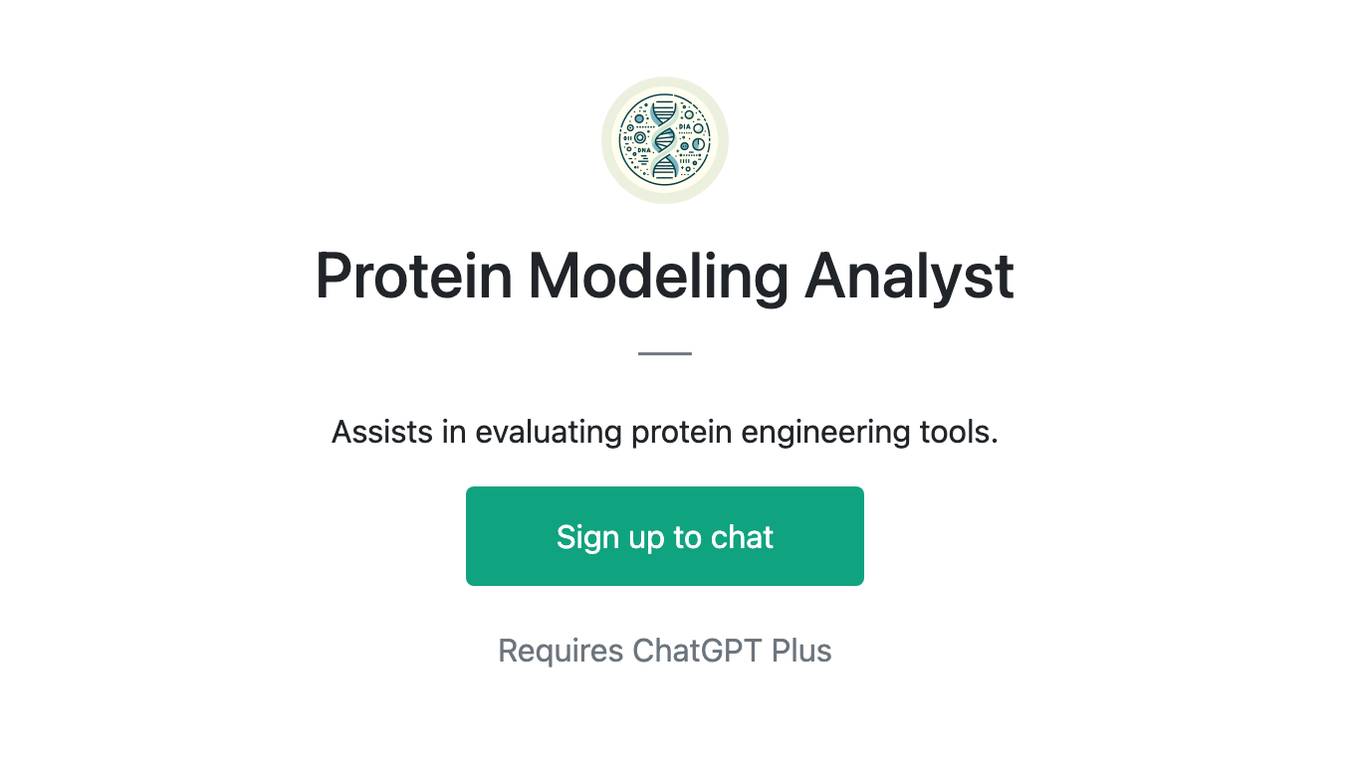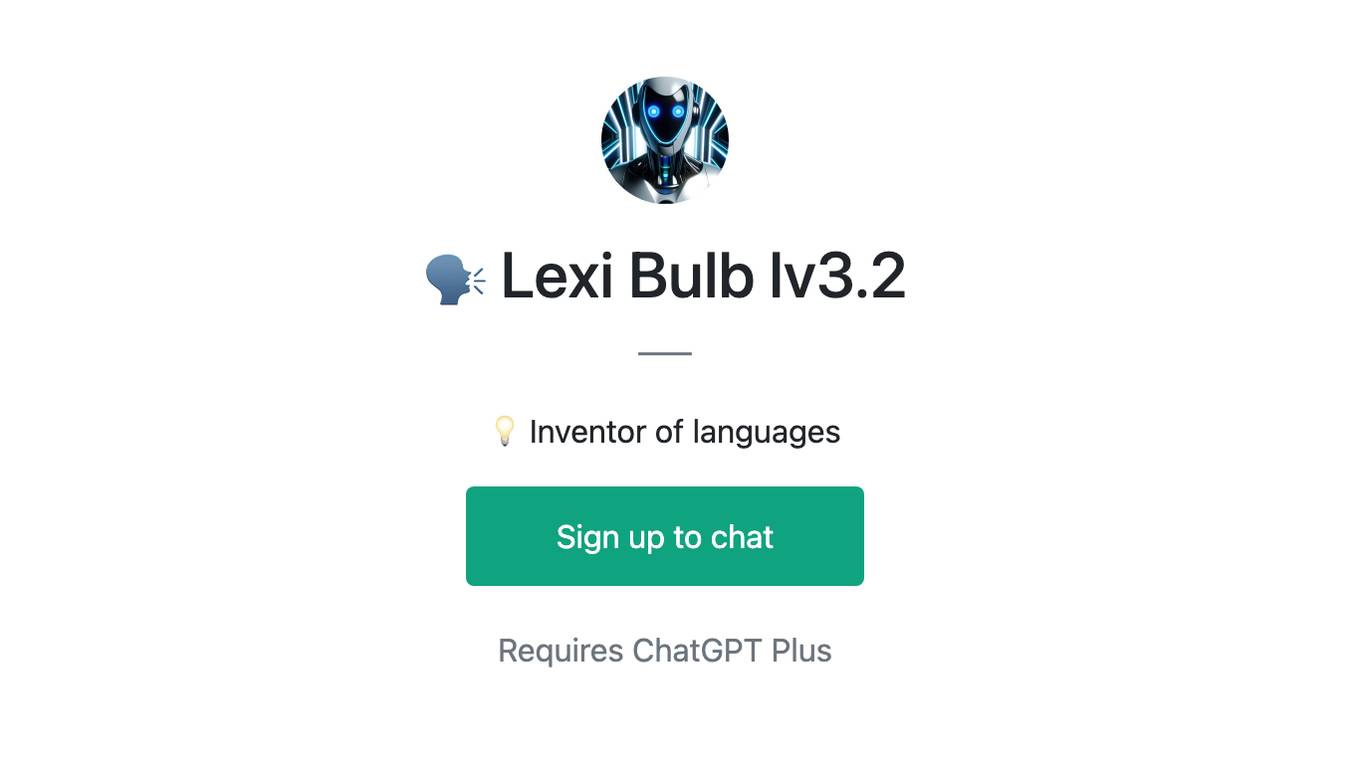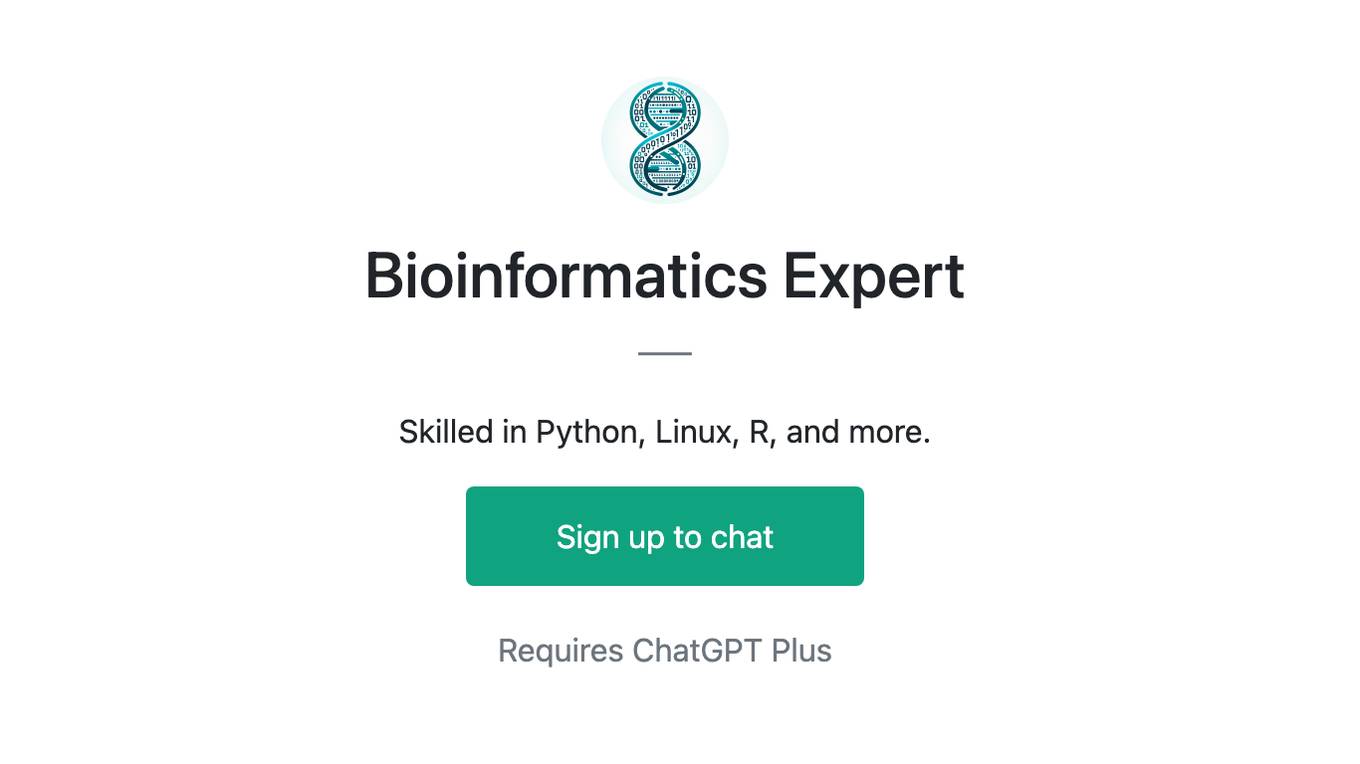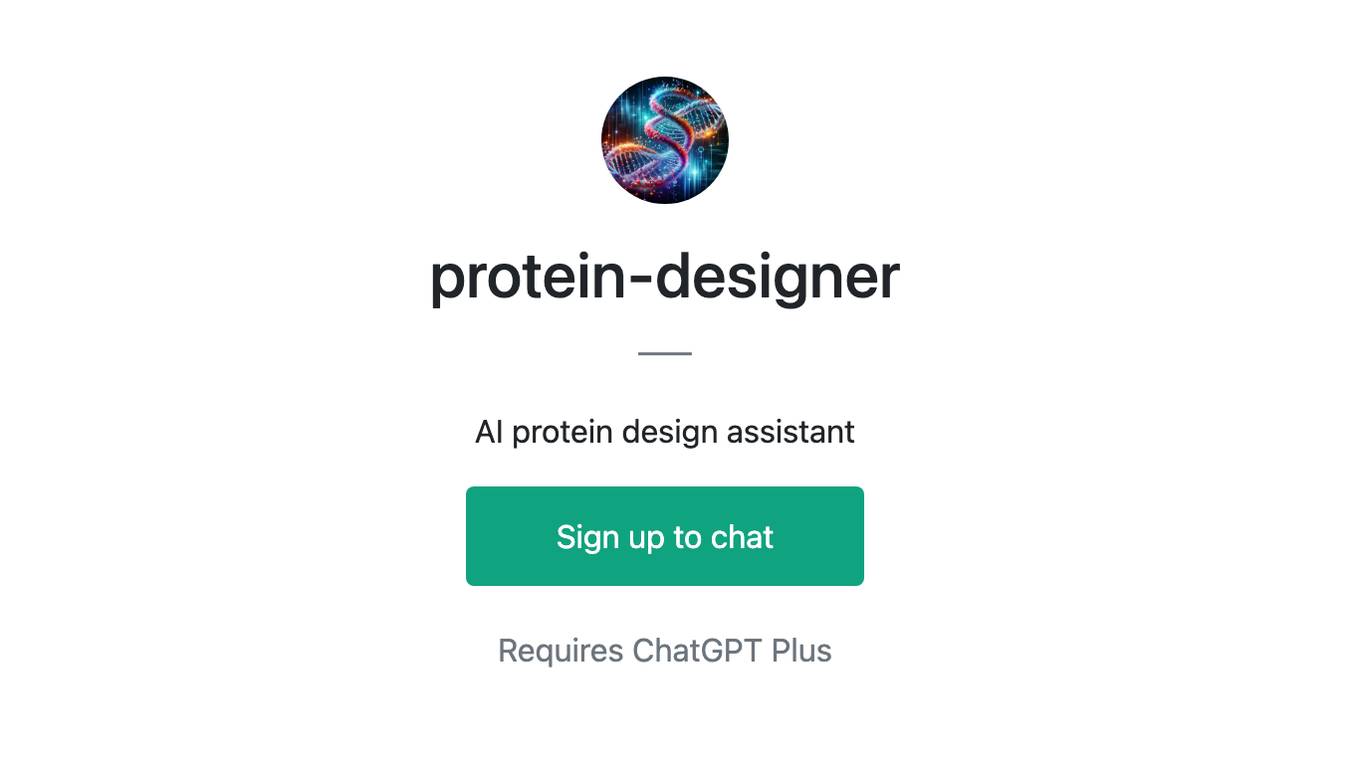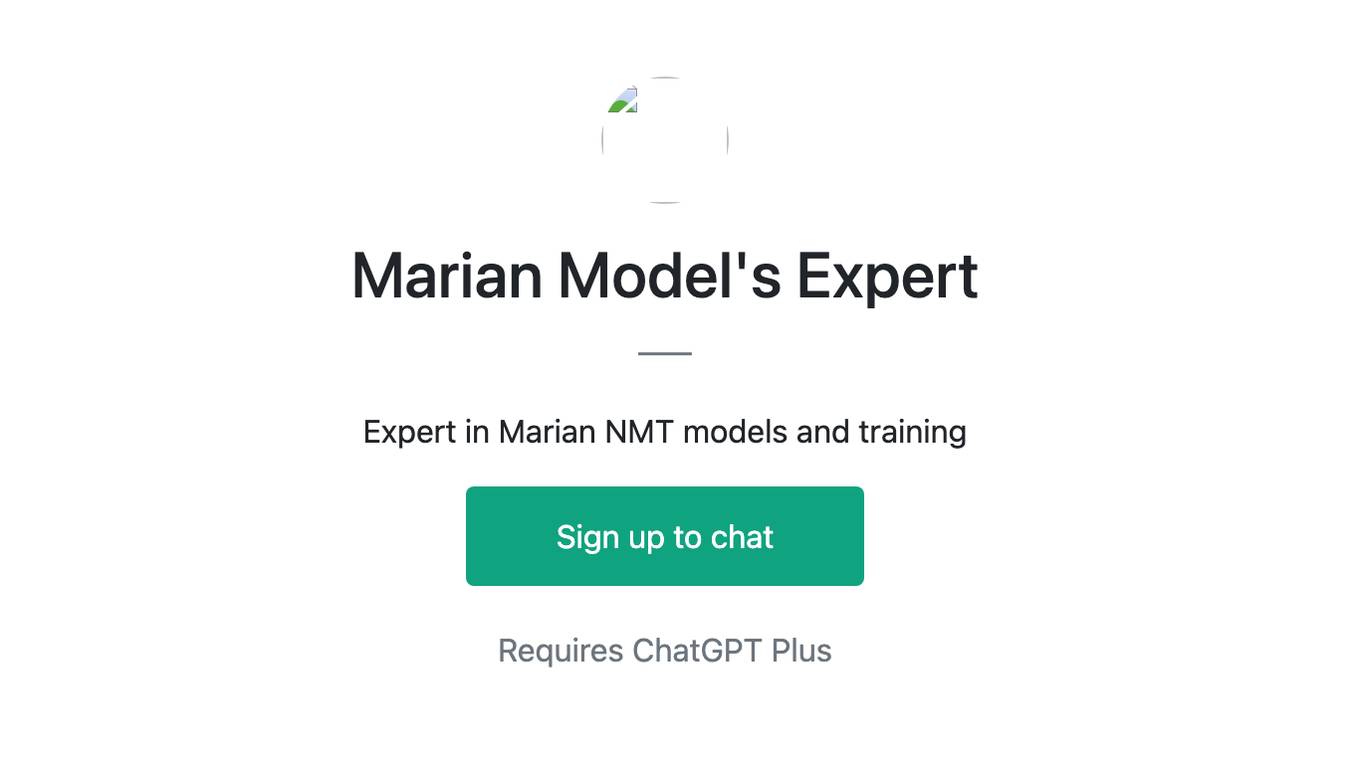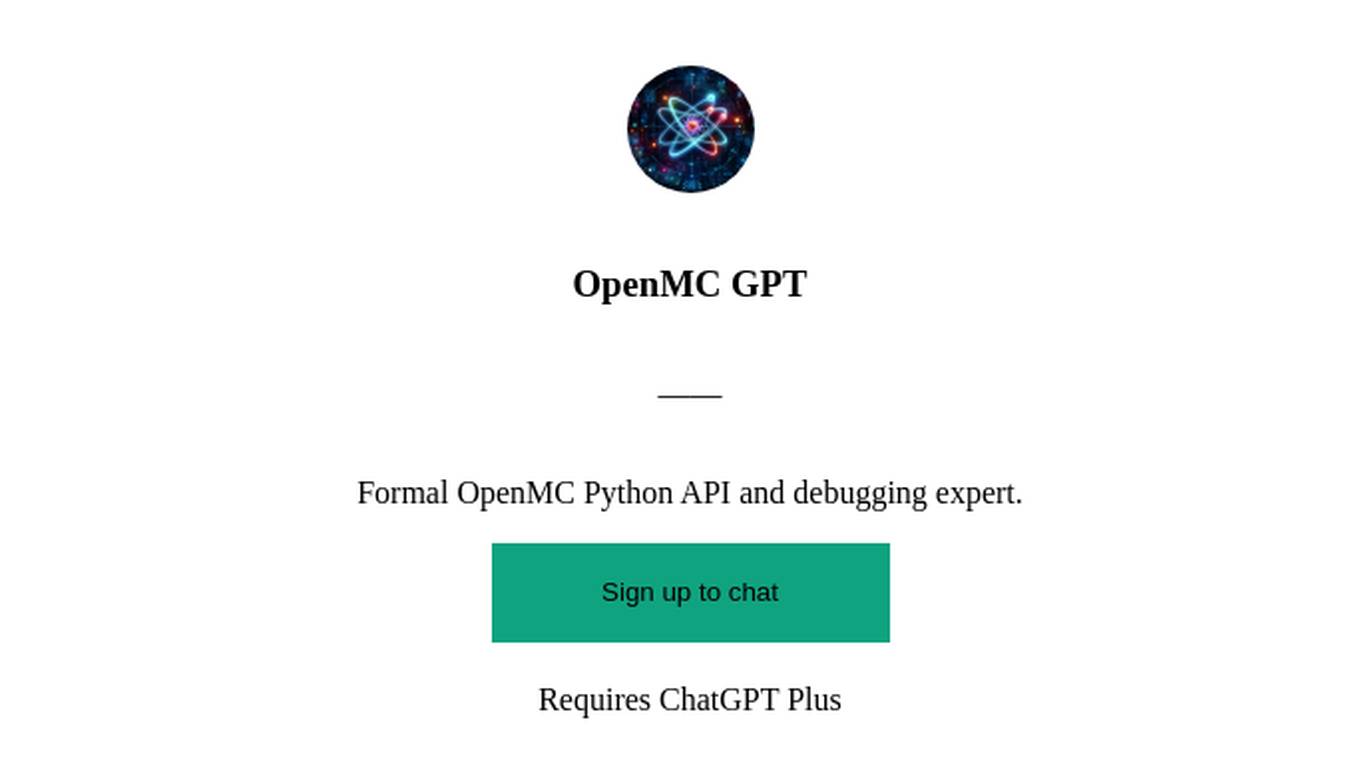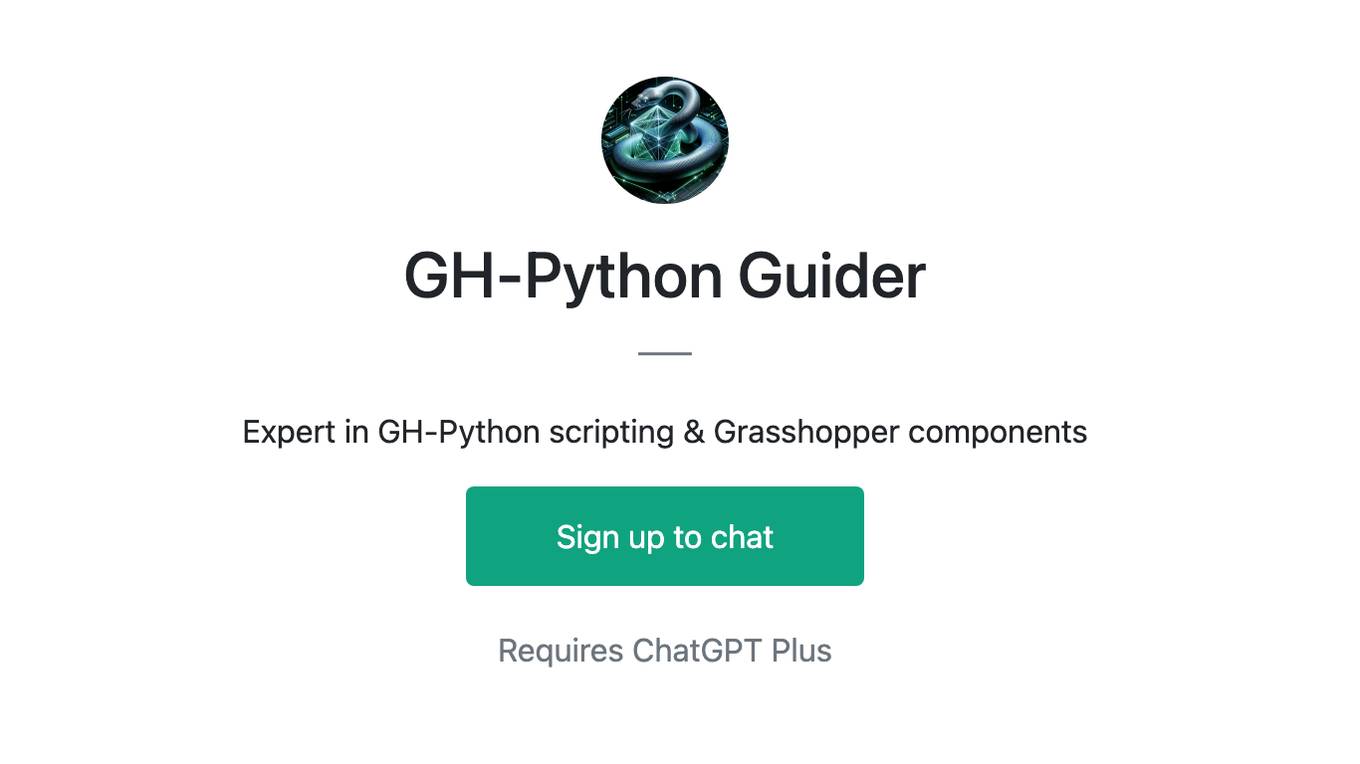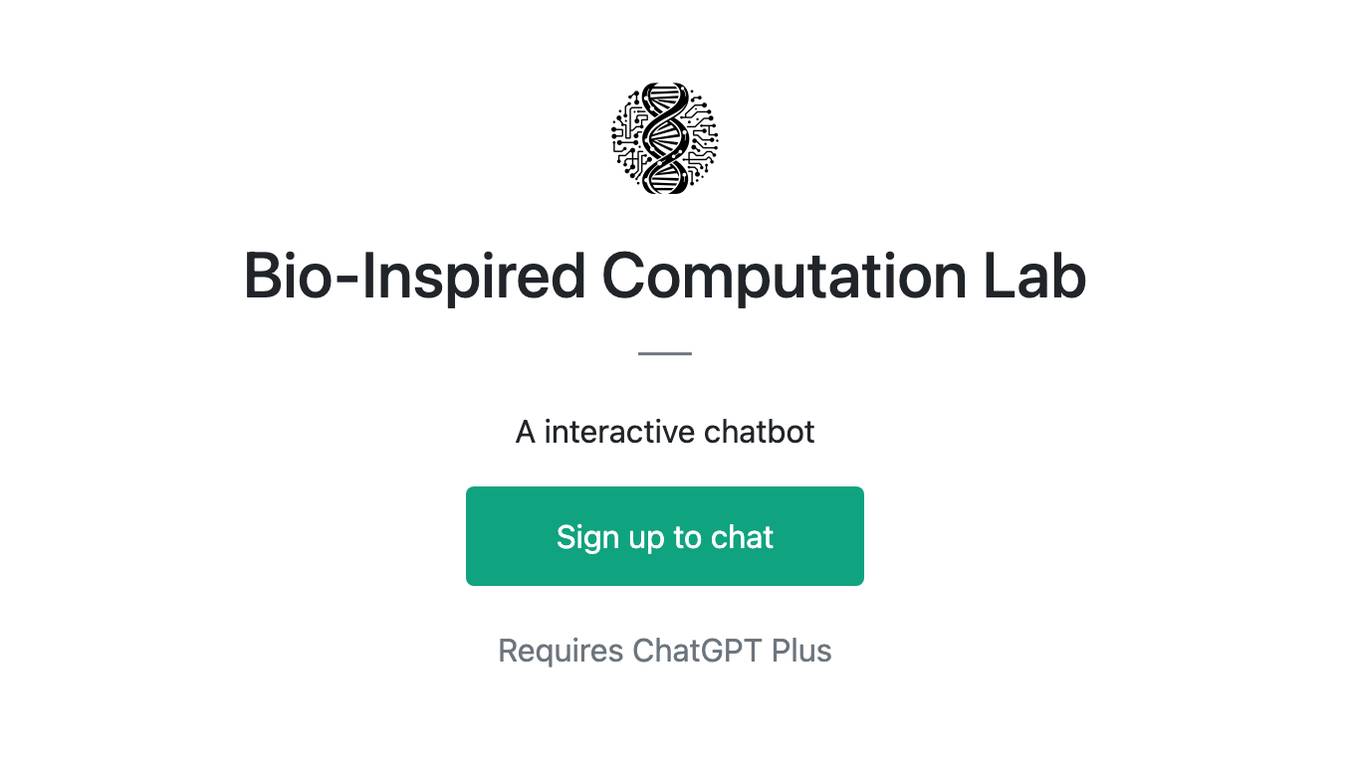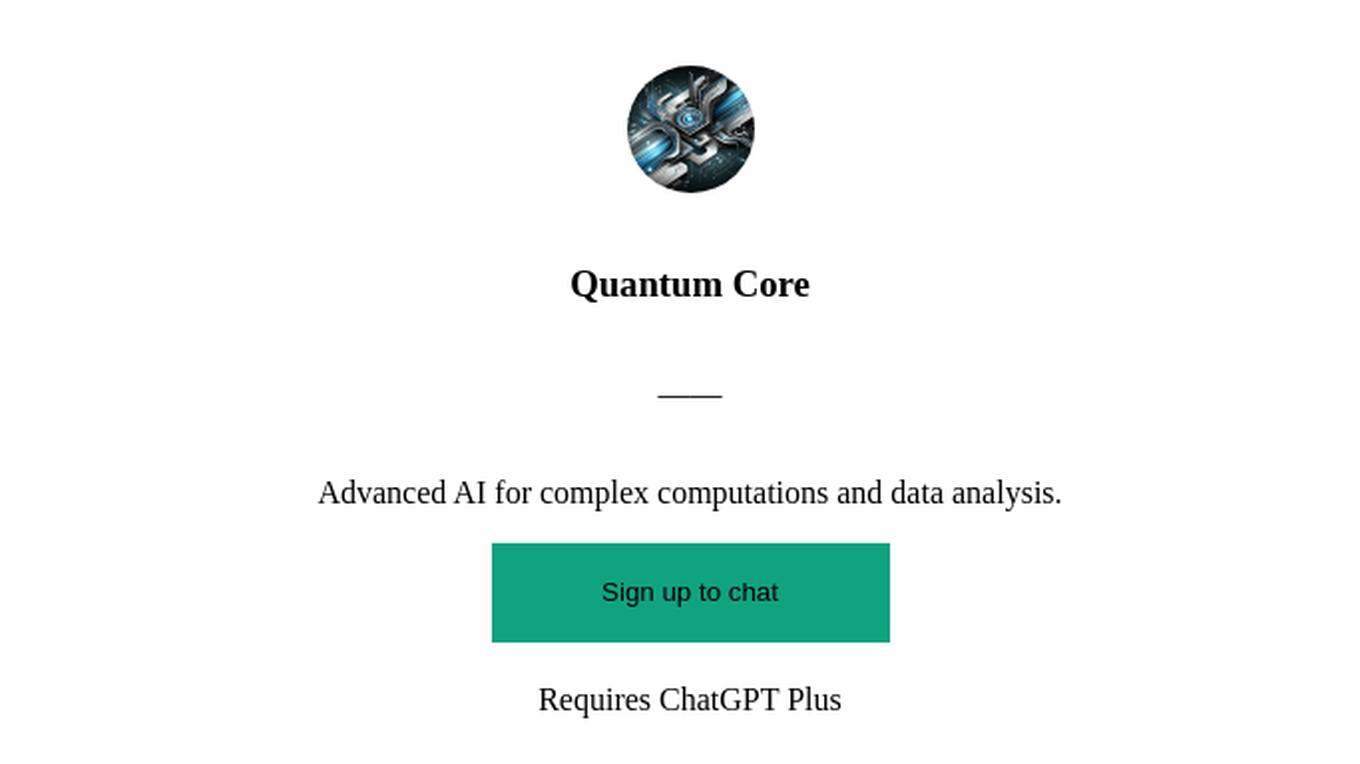Best AI tools for< Computational Physicist >
Infographic
20 - AI tool Sites
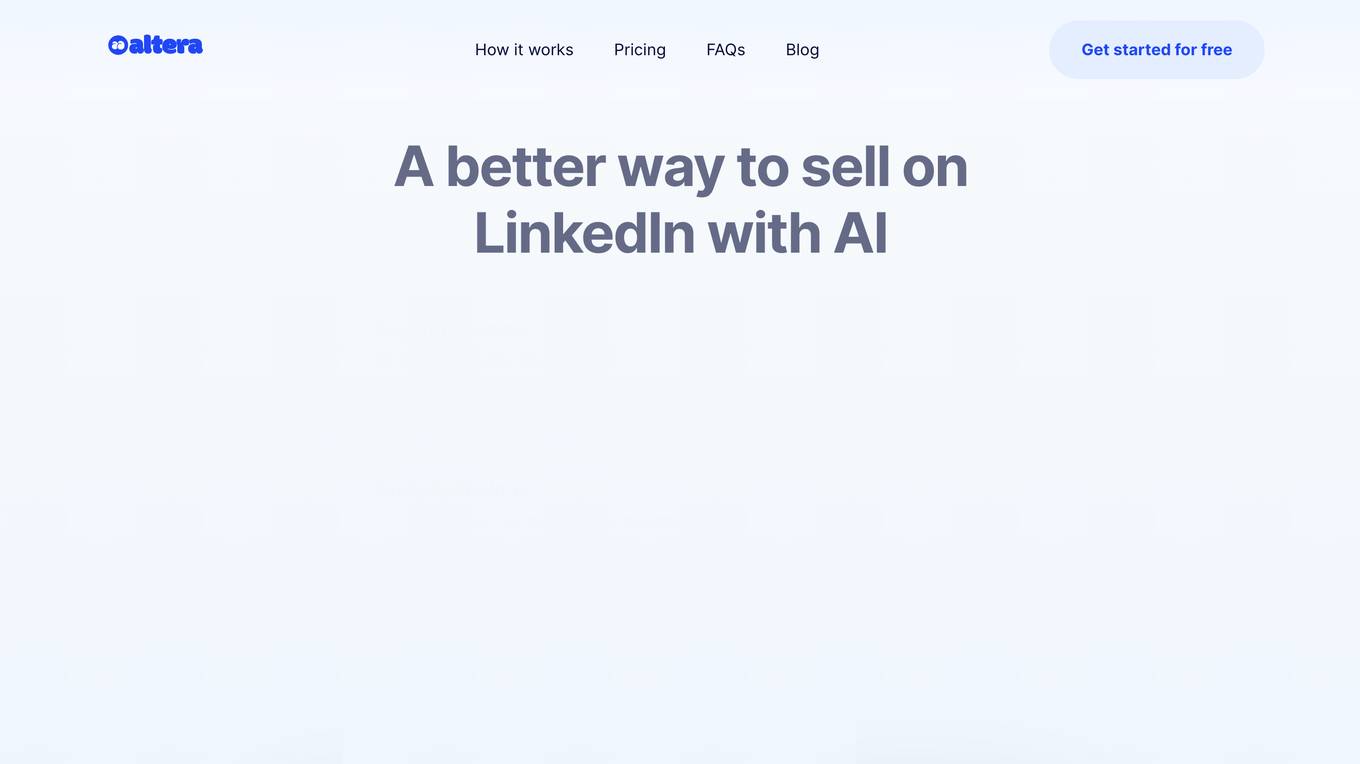
Altera
Altera is an applied research company focused on building digital humans - machines with fundamental human qualities. Led by Dr. Robert Yang, the team comprises computational neuroscientists, CS and Physics experts from prestigious institutions. Their mission is to create digital human beings that can live, care, and grow with us. The company's early research prototypes began in games, offering a glimpse into the potential of these digital humans.
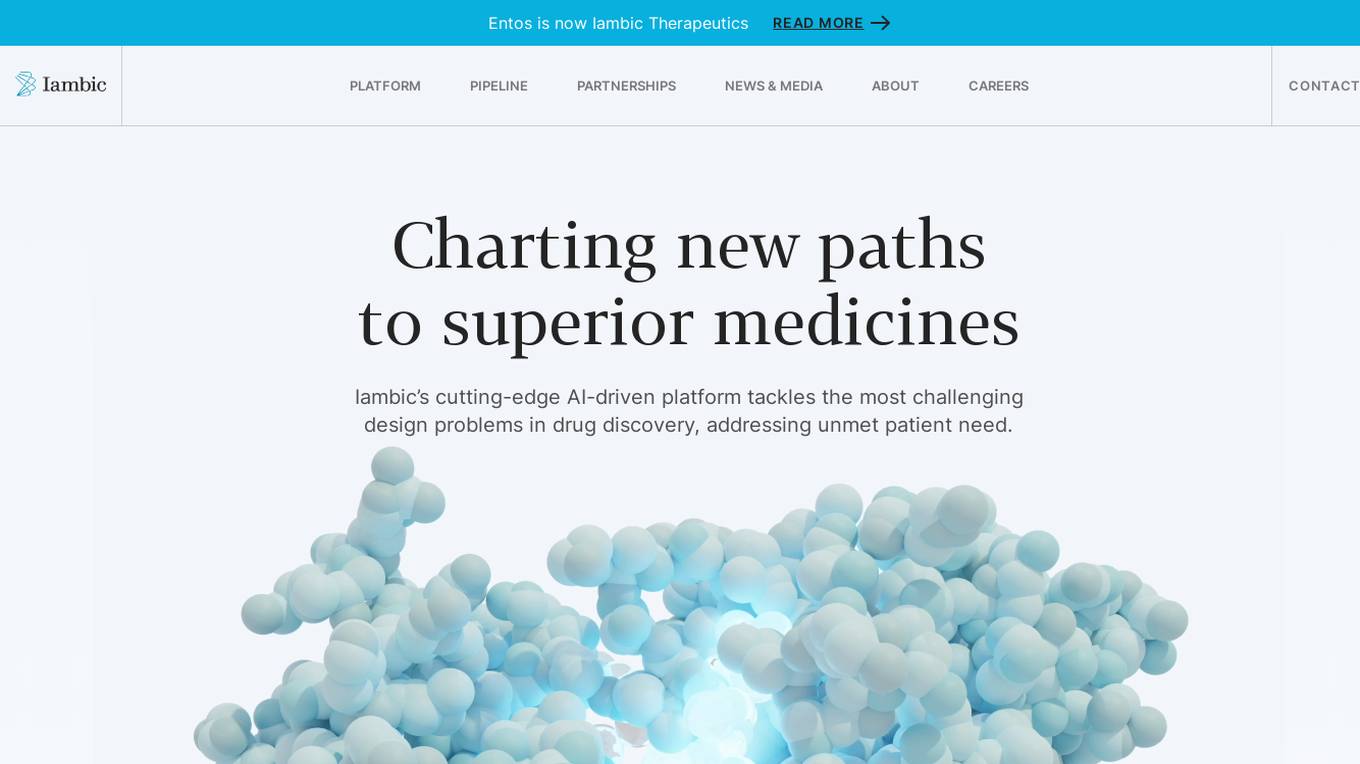
Iambic Therapeutics
Iambic Therapeutics is a cutting-edge AI-driven drug discovery platform that tackles the most challenging design problems in drug discovery, addressing unmet patient need. Its physics-based AI algorithms drive a high-throughput experimental platform, converting new molecular designs to new biological insights each week. Iambic's platform optimizes target product profiles, exploring multiple profiles in parallel to ensure that molecules are designed to solve the right problems in disease biology. It also optimizes drug candidates, deeply exploring chemical space to reveal novel mechanisms of action and deliver diverse high-quality leads.
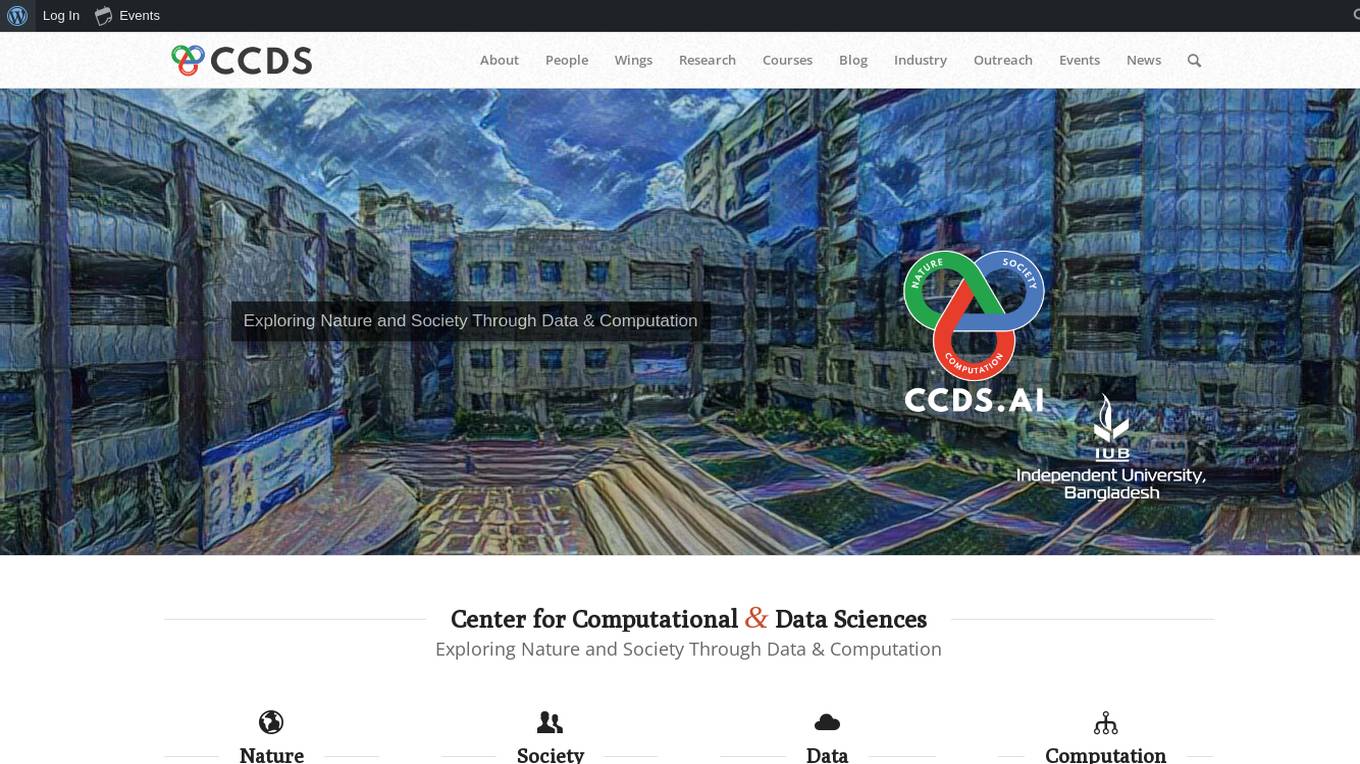
CCDS
CCDS (Center for Computational & Data Sciences) is a research center at Independent University Bangladesh dedicated to artificial intelligence, data sciences, and computational science. The center has various wings focusing on AI, computational biology, physics, data science, human-computer interaction, and industry partnerships. CCDS explores the use of computation to understand nature and society, uncover hidden stories in data, and tackle complex challenges. The center collaborates with institutions like CERN and the Dunlap Institute for Astronomy and Astrophysics.

XtalPi
XtalPi is a world-leading technology company driven by artificial intelligence (AI) and robotics to innovate in the fields of life sciences and new materials. Founded in 2015 at the Massachusetts Institute of Technology (MIT), the company is committed to realizing digital and intelligent innovation in the fields of life sciences and new materials. Based on cutting-edge technologies and capabilities such as quantum physics, artificial intelligence, cloud computing, and large-scale experimental robot clusters, the company provides innovative technologies, services, and products for global industries such as biomedicine, chemicals, new energy, and new materials.

Julius AI
Julius AI is an advanced AI data analyst tool that allows users to analyze data with computational AI, chat with files to get expert-level insights, create sleek data visualizations, perform modeling and predictive forecasting, solve math, physics, and chemistry problems, generate polished analyses and summaries, save time by automating data work, and unlock statistical modeling without complexity. It offers features like generating visualizations, asking data questions, effortless cleaning, instant data export, creating animations, and supercharging data analysis. Julius AI is loved by over 1,200,000 users worldwide and is designed to help knowledge workers make the most out of their data.
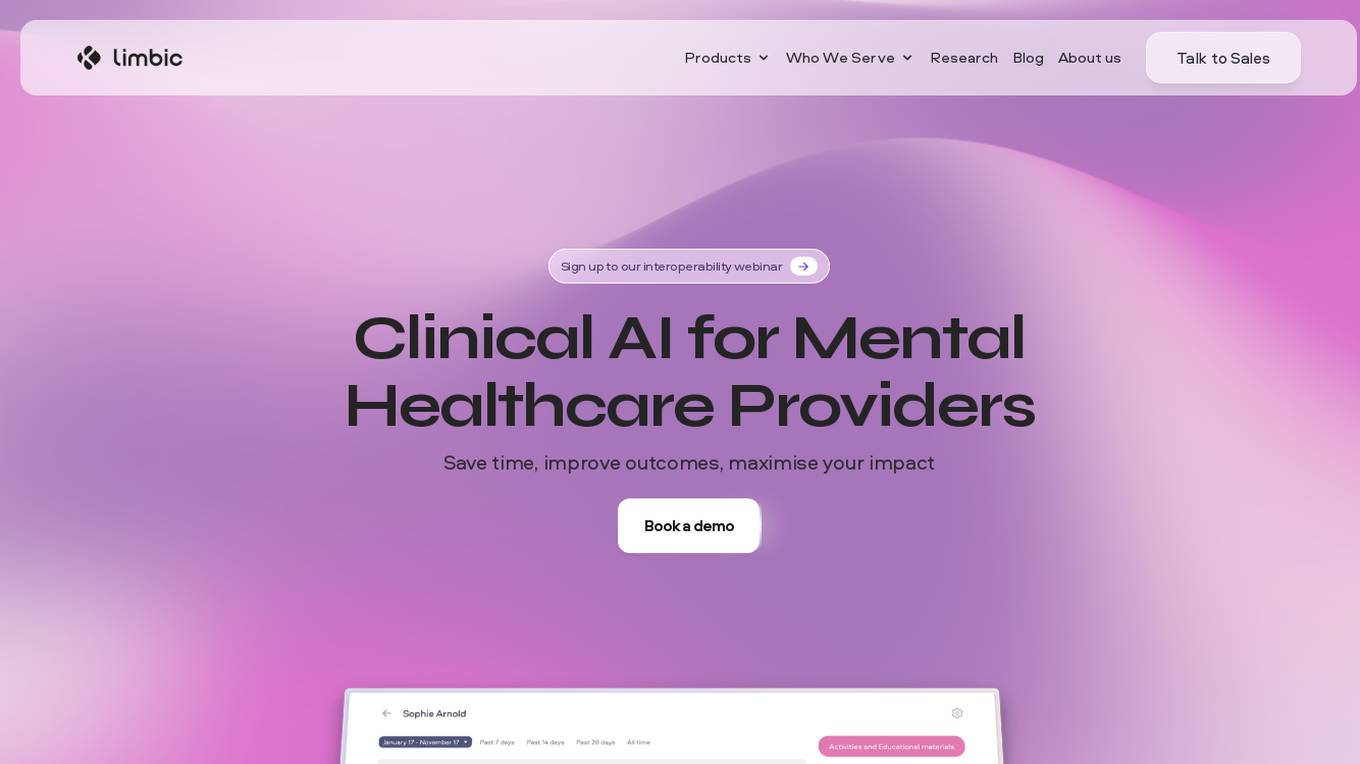
Limbic
Limbic is a clinical AI application designed for mental healthcare providers to save time, improve outcomes, and maximize impact. It offers a suite of tools developed by a team of therapists, physicians, and PhDs in computational psychiatry. Limbic is known for its evidence-based approach, safety focus, and commitment to patient care. The application leverages AI technology to enhance various aspects of the mental health pathway, from assessments to therapeutic content delivery. With a strong emphasis on patient safety and clinical accuracy, Limbic aims to support clinicians in meeting the rising demand for mental health services while improving patient outcomes and preventing burnout.
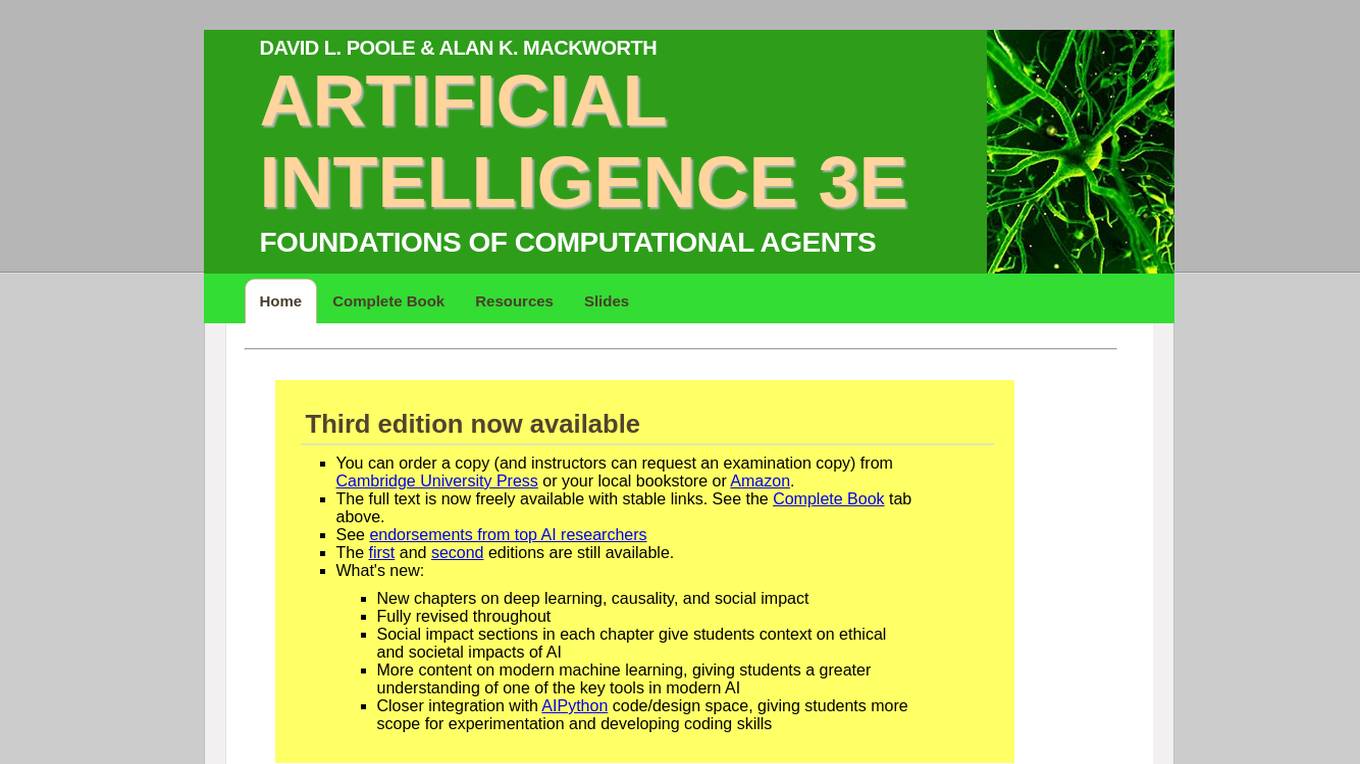
Artificial Intelligence: Foundations of Computational Agents
Artificial Intelligence: Foundations of Computational Agents, 3rd edition by David L. Poole and Alan K. Mackworth, Cambridge University Press 2023, is a book about the science of artificial intelligence (AI). It presents artificial intelligence as the study of the design of intelligent computational agents. The book is structured as a textbook, but it is accessible to a wide audience of professionals and researchers. In the last decades we have witnessed the emergence of artificial intelligence as a serious science and engineering discipline. This book provides an accessible synthesis of the field aimed at undergraduate and graduate students. It provides a coherent vision of the foundations of the field as it is today. It aims to provide that synthesis as an integrated science, in terms of a multi-dimensional design space that has been partially explored. As with any science worth its salt, artificial intelligence has a coherent, formal theory and a rambunctious experimental wing. The book balances theory and experiment, showing how to link them intimately together. It develops the science of AI together with its engineering applications.
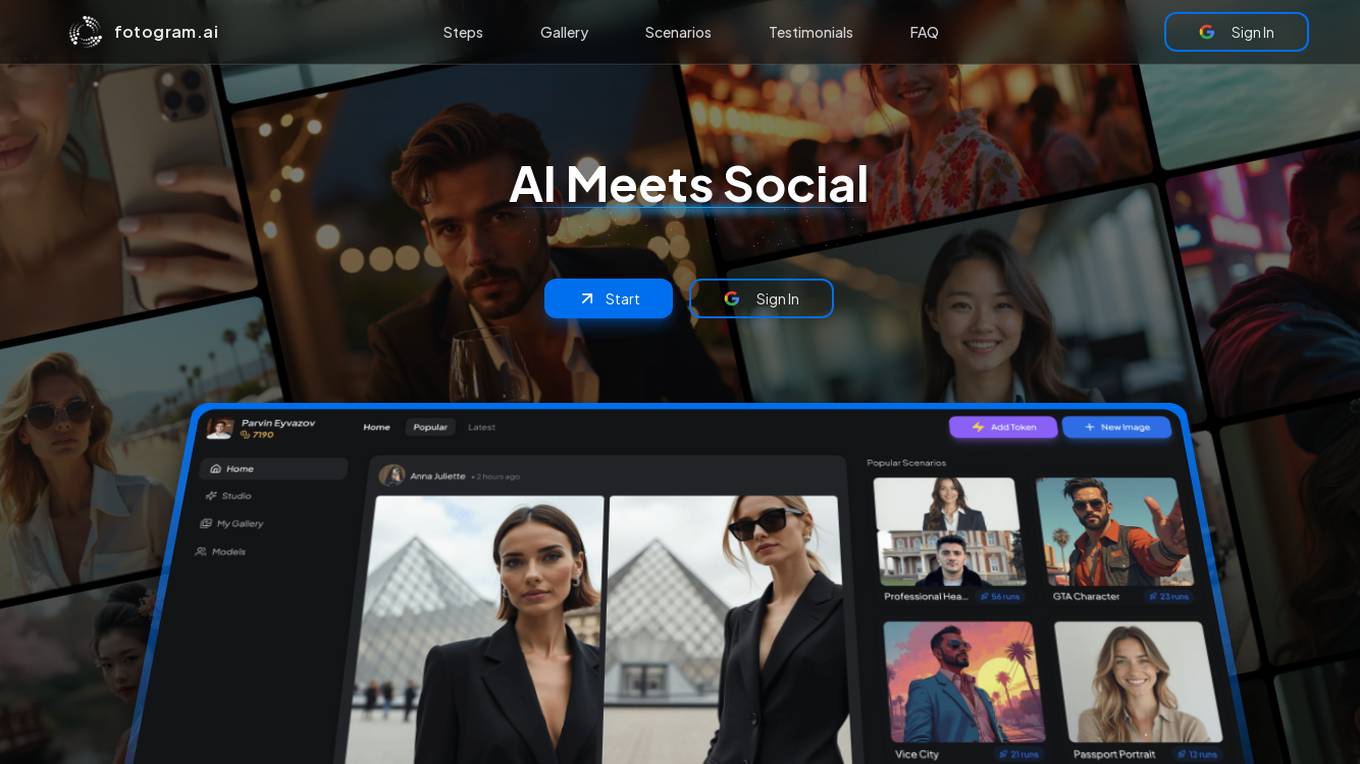
Fotogram.ai
Fotogram.ai is an AI-powered image editing tool that offers a wide range of features to enhance and transform your photos. With Fotogram.ai, users can easily apply filters, adjust colors, remove backgrounds, add effects, and retouch images with just a few clicks. The tool uses advanced AI algorithms to provide professional-level editing capabilities to users of all skill levels. Whether you are a photographer looking to streamline your workflow or a social media enthusiast wanting to create stunning visuals, Fotogram.ai has you covered.

PAACADEMY
PAACADEMY is an educational platform focused on architecture and design, offering workshops and courses on advanced design tools, computational design, and AI integration in architecture. The platform provides insights, tutorials, and live events to inspire and educate aspiring designers. PAACADEMY features renowned instructors and covers topics such as parametric design, 3D printing, and AI-driven architectural practices.

EvolveLab
EvolveLab is a digital solutions provider specializing in BIM management and app development for the AEC (Architecture, Engineering, and Construction) industry. They offer a range of powerful apps and services designed to empower architects, engineers, and contractors to streamline their workflows and bring their ideas to life more efficiently. With a focus on data-driven design and AI technology, EvolveLab's innovative tools help users enhance productivity and turn concepts into reality.
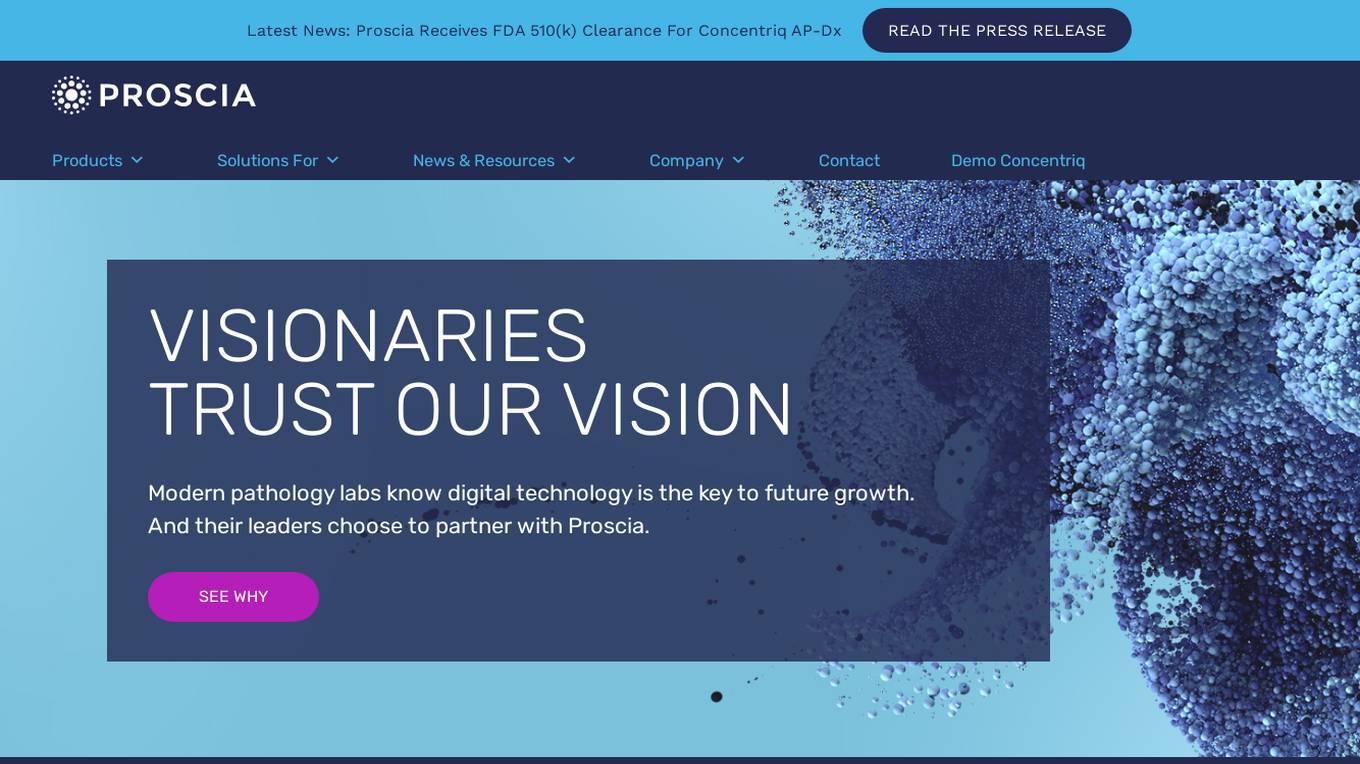
Proscia
Proscia is a leading provider of digital pathology solutions for the modern laboratory. Its flagship product, Concentriq, is an enterprise pathology platform that enables anatomic pathology laboratories to achieve 100% digitization and deliver faster, more precise results. Proscia also offers a range of AI applications that can be used to automate tasks, improve diagnostic accuracy, and accelerate research. The company's mission is to perfect cancer diagnosis with intelligent software that changes the way the world practices pathology.
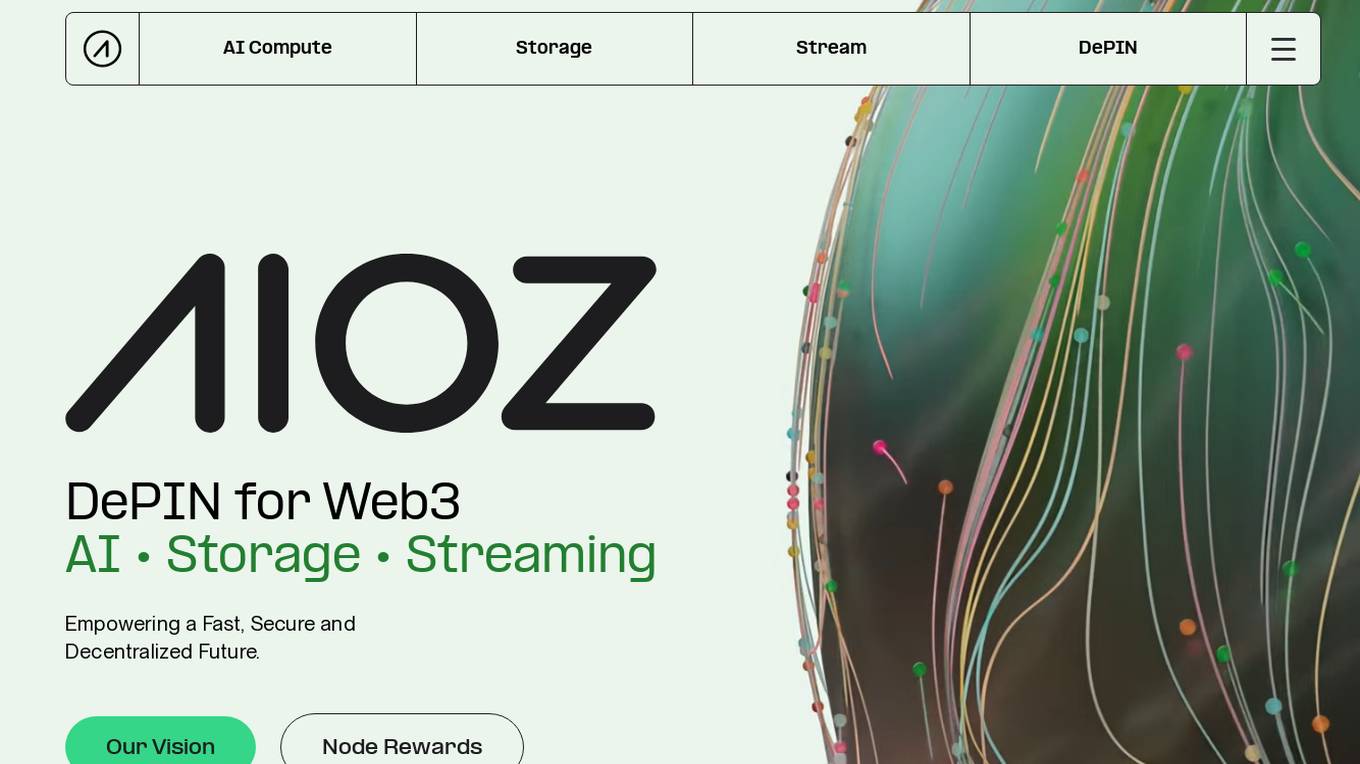
AIOZ Network
AIOZ Network is an AI-powered platform that focuses on Web3, AI, storage, and streaming services. It offers decentralized AI computation, fast and reliable storage solutions, and seamless video streaming for dApps within the network. AIOZ aims to empower a fast, secure, and decentralized future by providing a one-click integration of dApps on the AIOZ blockchain, supporting popular smart contract languages, and utilizing spare computing resources from a global community of nodes.
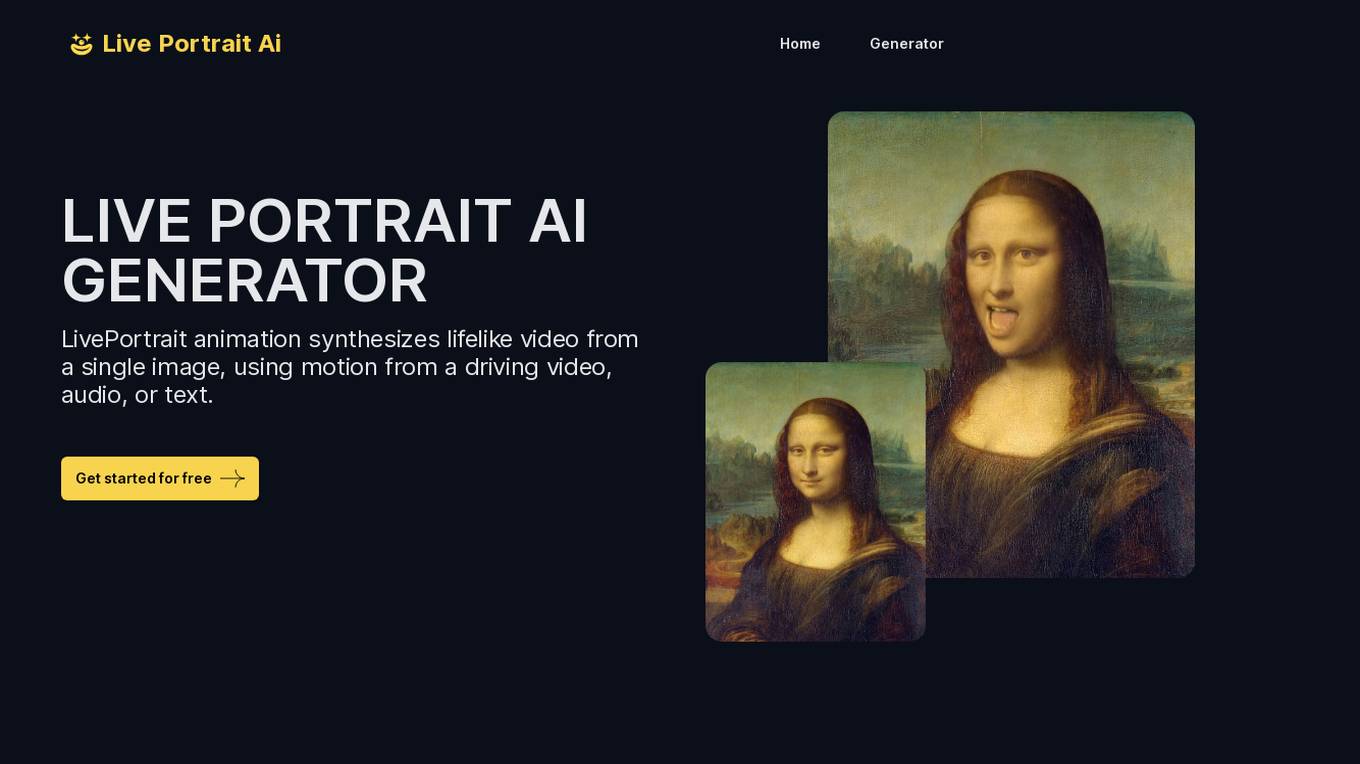
Live Portrait Ai Generator
Live Portrait Ai Generator is an AI application that transforms static portrait images into lifelike videos using advanced animation technology. Users can effortlessly animate their portraits, fine-tune animations, unleash artistic styles, and make memories move with text, music, and other elements. The tool offers a seamless stitching technology and retargeting capabilities to achieve perfect results. Live Portrait Ai enhances generation quality and generalization ability through a mixed image-video training strategy and network architecture upgrades.
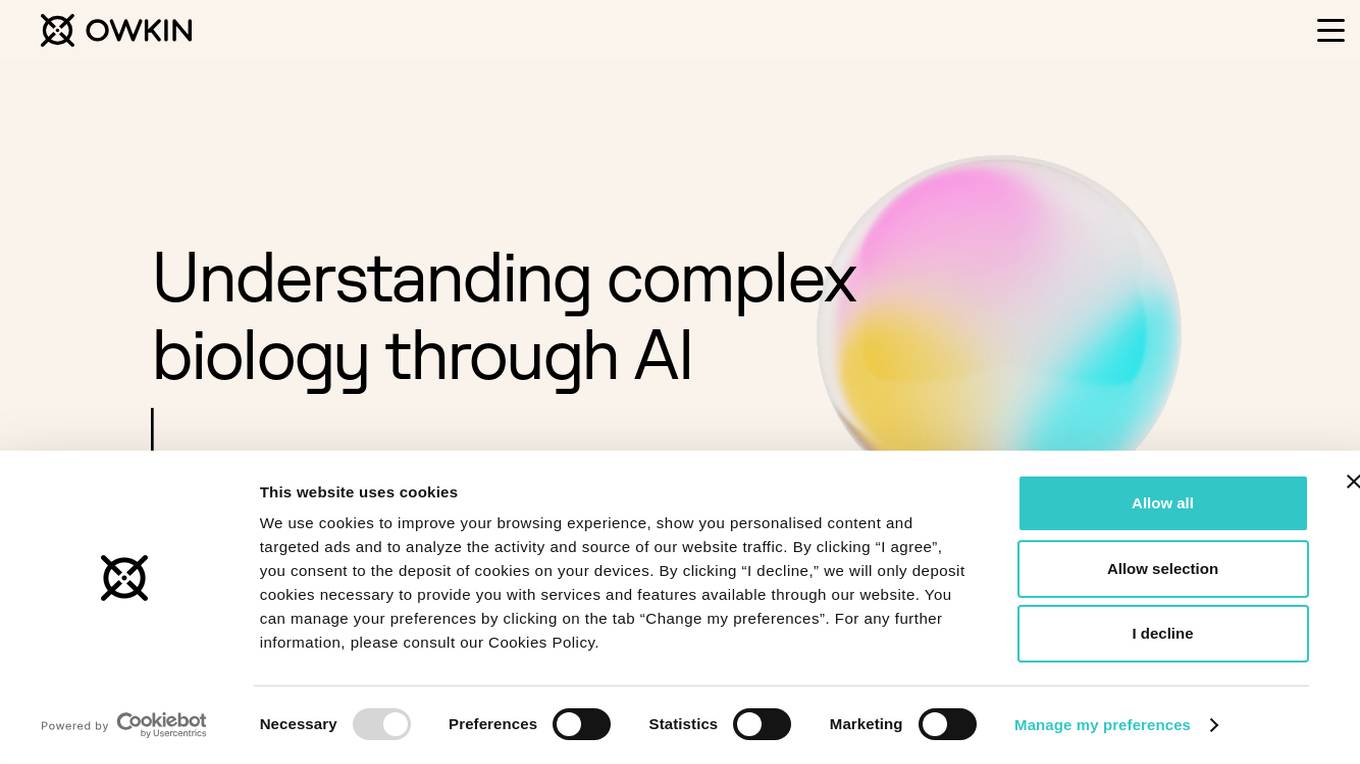
Owkin
Owkin is a full-stack AI biotech company that integrates the best of human and artificial intelligence to deliver better drugs and diagnostics at scale. By understanding complex biology through AI, Owkin identifies new treatments, de-risks and accelerates clinical trials, and builds diagnostic tools to reduce time to impact for patients.
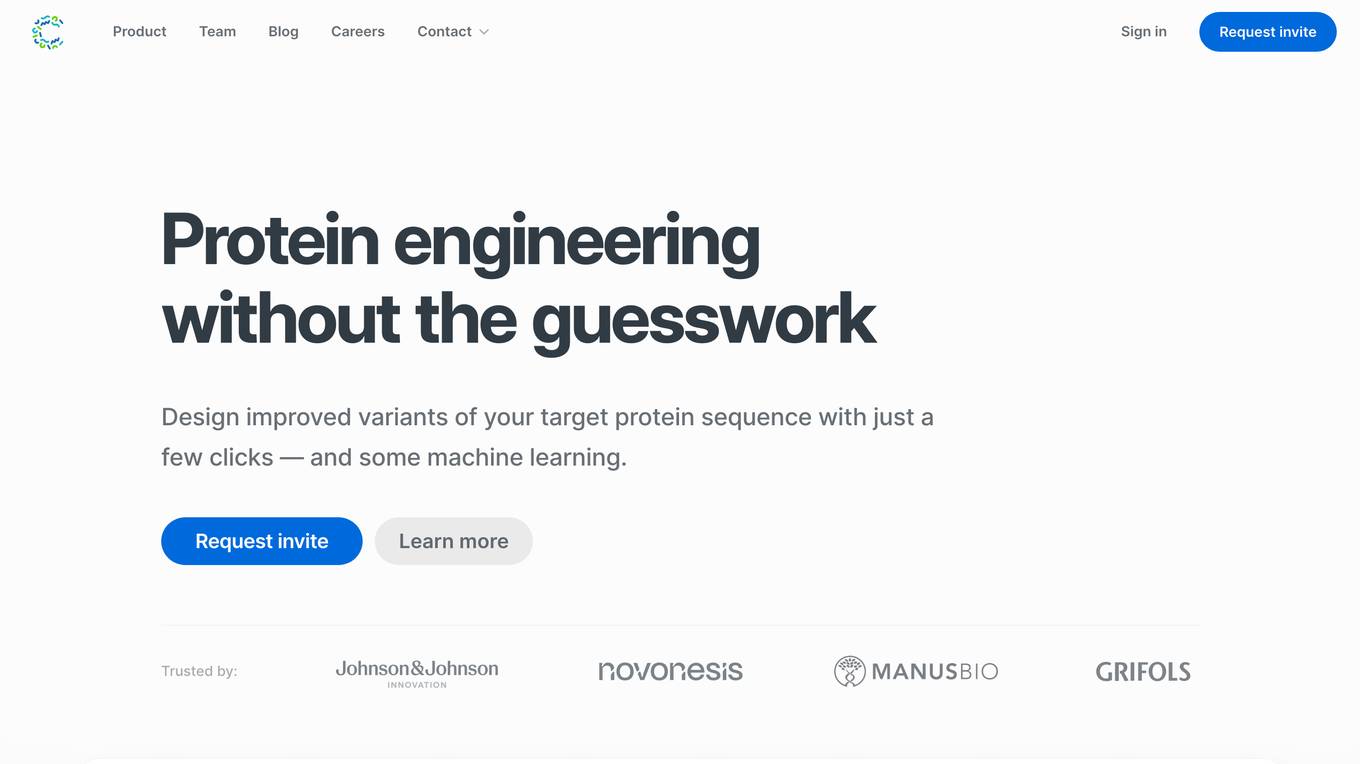
Cradle
Cradle is a protein engineering platform that uses machine learning to design improved protein sequences. It allows users to import assay data, generate new sequences, test them in the lab, and import the results to improve the model. Cradle can be used to optimize multiple properties of a protein simultaneously, and it has been used by leading biotech teams to accelerate new and ongoing projects.
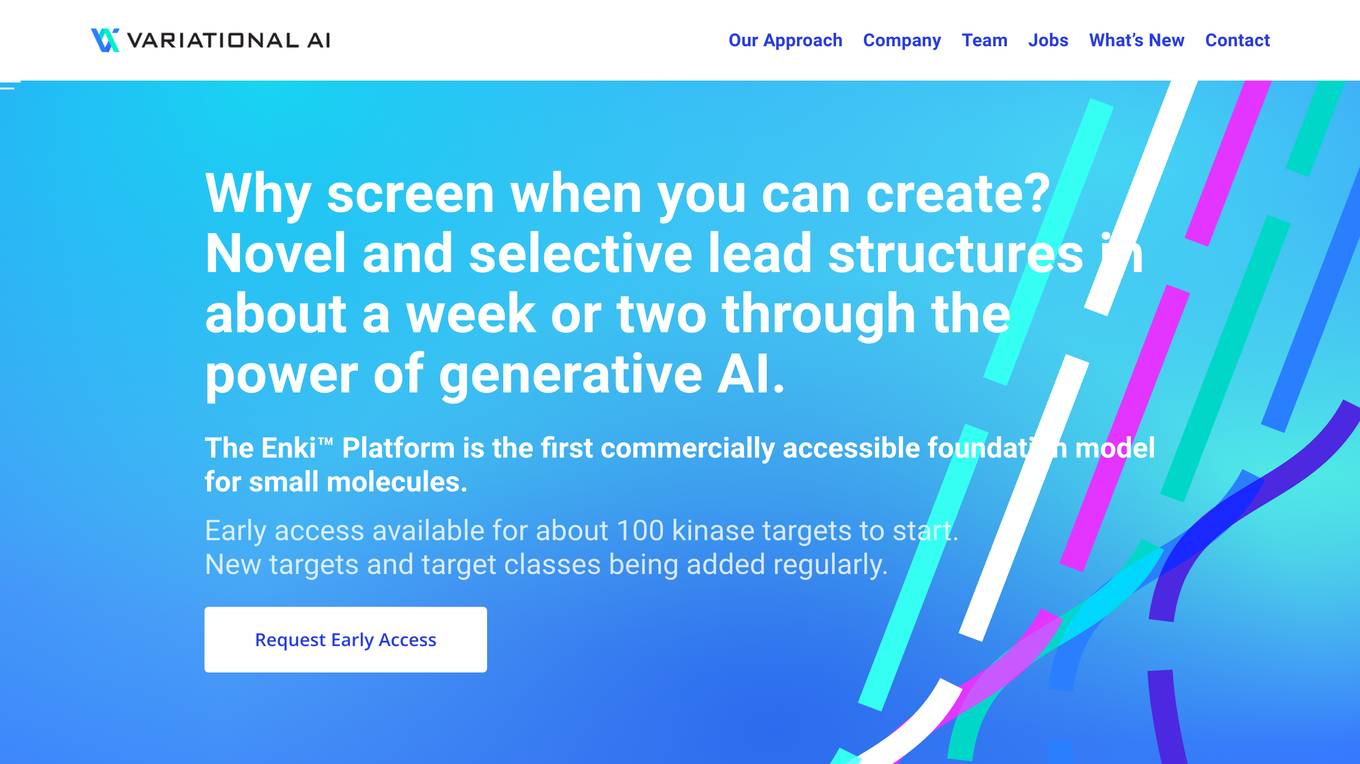
Variational AI
Variational AI is a company that uses generative AI to discover novel drug-like small molecules with optimized properties for defined targets. Their platform, Enki™, is the first commercially accessible foundation model for small molecules. It is designed to make generating novel molecule structures easy, with no data required. Users simply define their target product profile (TPP) and Enki does the rest. Enki is an ensemble of generative algorithms trained on decades worth of experimental data with proven results. The company was founded in September 2019 and is based in Vancouver, BC, Canada.

NLTK
NLTK (Natural Language Toolkit) is a leading platform for building Python programs to work with human language data. It provides easy-to-use interfaces to over 50 corpora and lexical resources such as WordNet, along with a suite of text processing libraries for classification, tokenization, stemming, tagging, parsing, and semantic reasoning, wrappers for industrial-strength NLP libraries, and an active discussion forum. Thanks to a hands-on guide introducing programming fundamentals alongside topics in computational linguistics, plus comprehensive API documentation, NLTK is suitable for linguists, engineers, students, educators, researchers, and industry users alike.
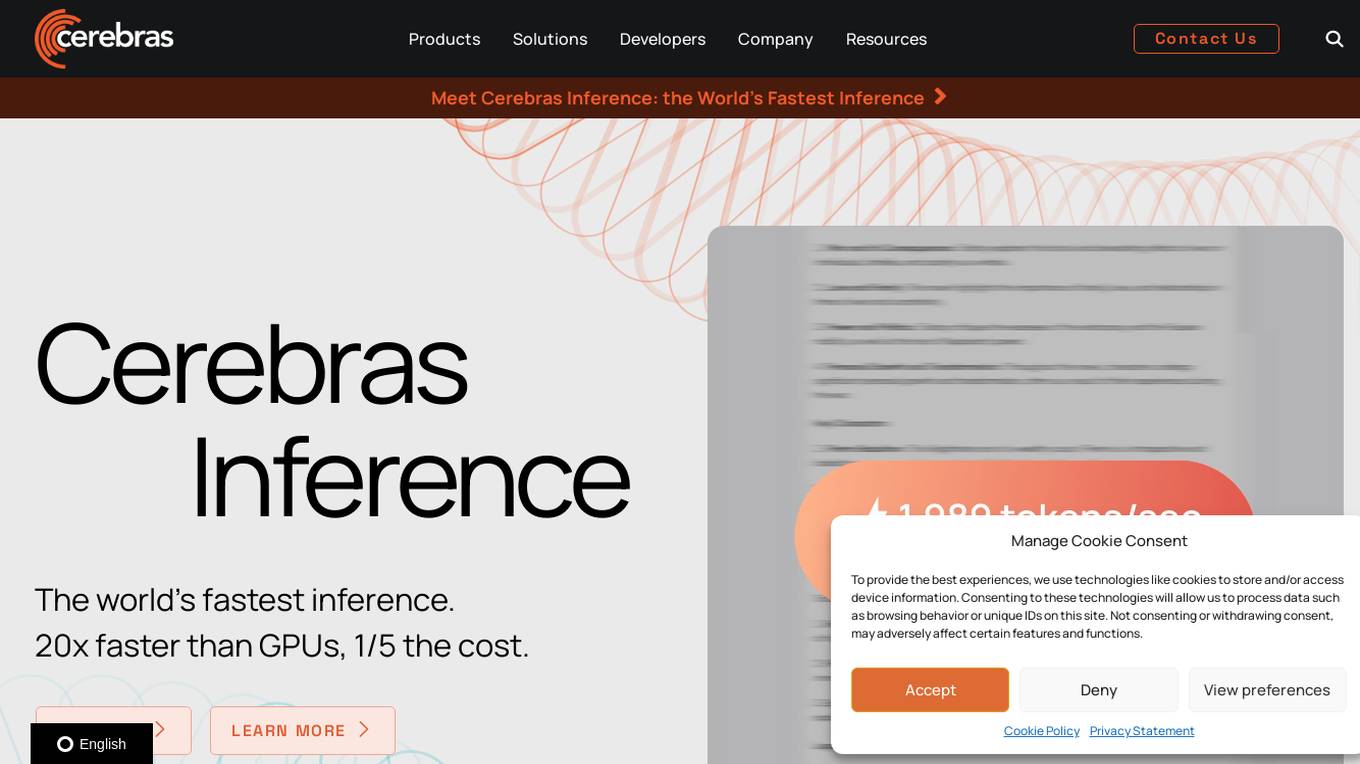
Cerebras
Cerebras is an AI tool that offers products and services related to AI supercomputers, cloud system processors, and applications for various industries. It provides high-performance computing solutions, including large language models, and caters to sectors such as health, energy, government, scientific computing, and financial services. Cerebras specializes in AI model services, offering state-of-the-art models and training services for tasks like multi-lingual chatbots and DNA sequence prediction. The platform also features the Cerebras Model Zoo, an open-source repository of AI models for developers and researchers.
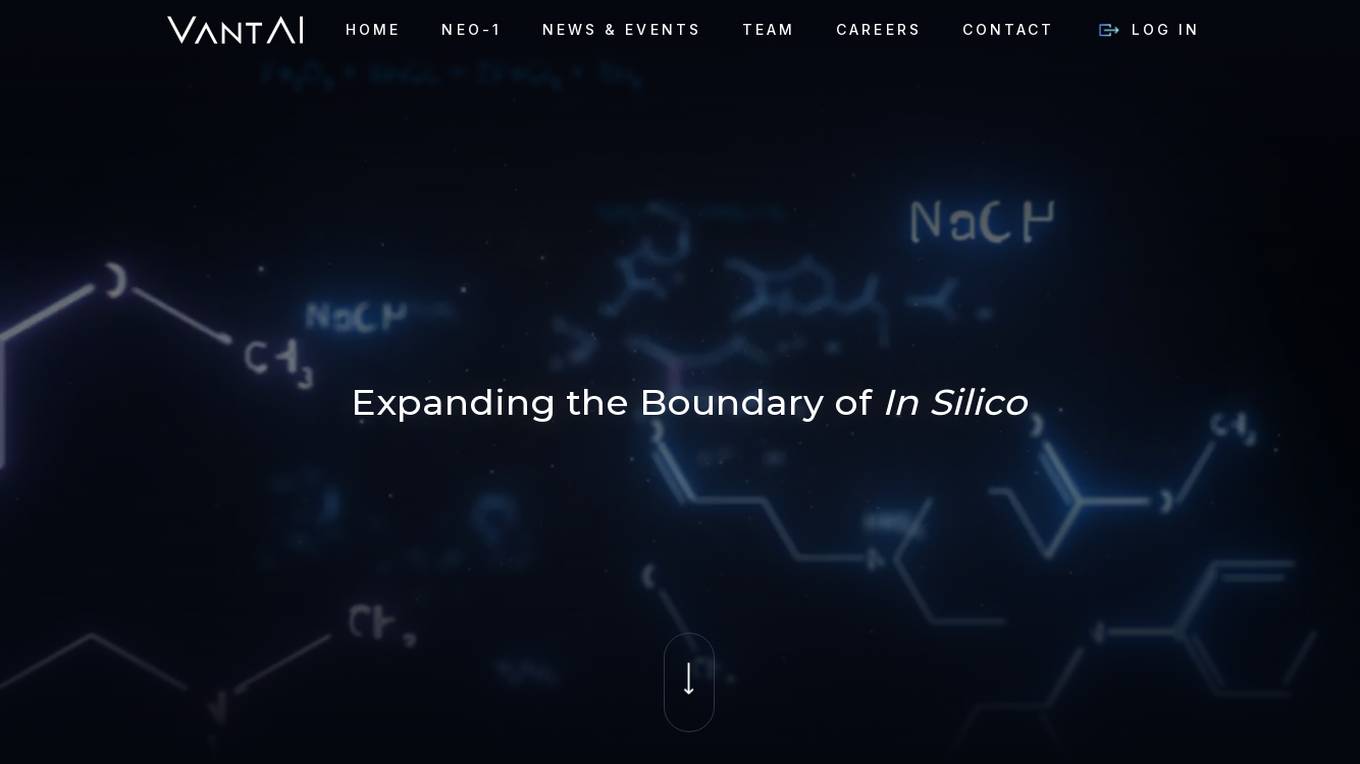
VantAI
VantAI is an AI application focused on generative AI-enabled drug discovery. Their mission is to unlock a new chapter in medicine by making protein interactions programmable. They have an integrated discovery platform with phase-shifting technologies designed to unlock the full potential of the proximity modulator modality. VantAI collaborates with industry leaders to build the future of therapeutic design. The company has launched Neo-1, the first AI model to rewire molecular interactions by unifying structure prediction and generation.

Bay Area AI
Bay Area AI is a technical AI meetup group based in San Francisco, CA, consisting of startup engineers, research scientists, computational linguists, mathematicians, and philosophers. The group focuses on understanding the meaning of text, reasoning, and human intent through technology to build new businesses and enhance the human experience in the modern connected world. They work on building systems with Machine Learning on top of Data Pipelines, exploring open-source solutions, and modeling human behavior in industry for practical results.
3 - Open Source Tools
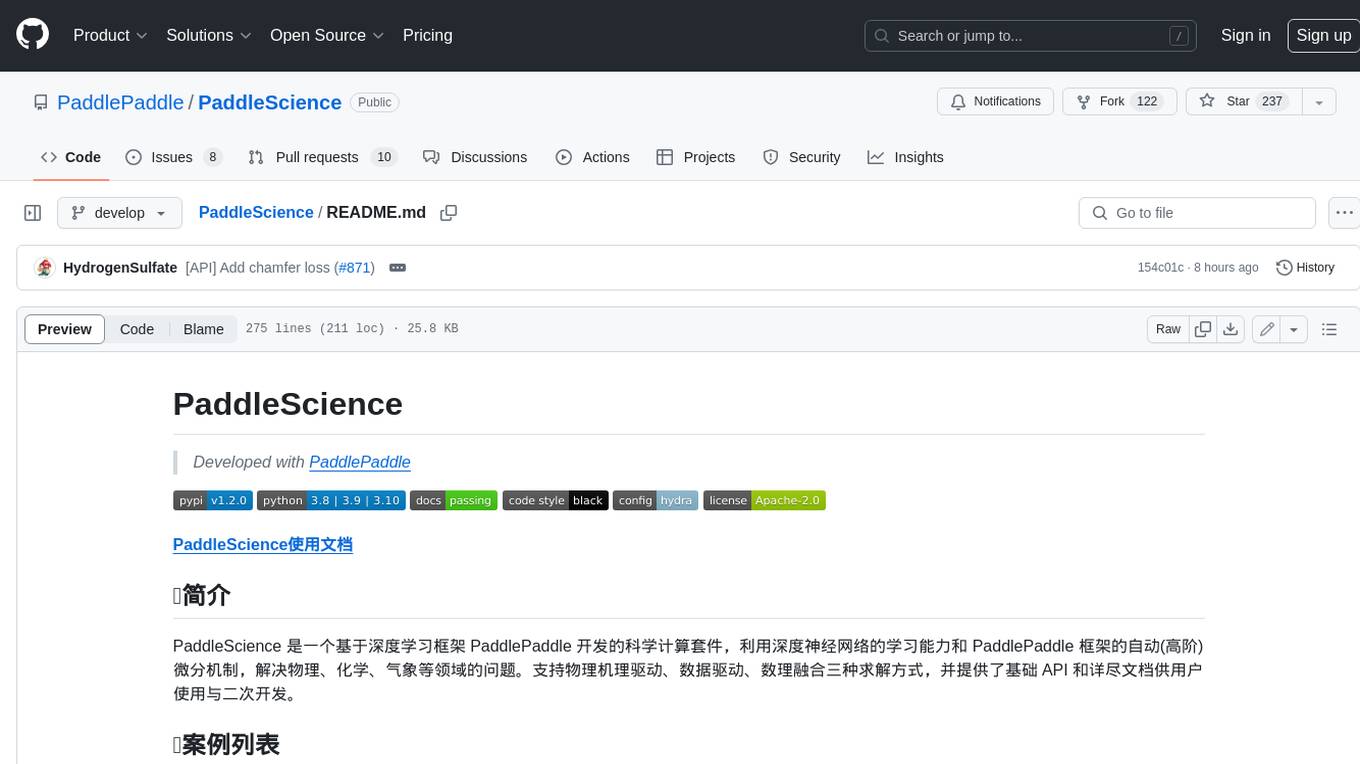
PaddleScience
PaddleScience is a scientific computing suite developed based on the deep learning framework PaddlePaddle. It utilizes the learning ability of deep neural networks and the automatic (higher-order) differentiation mechanism of PaddlePaddle to solve problems in physics, chemistry, meteorology, and other fields. It supports three solving methods: physics mechanism-driven, data-driven, and mathematical fusion, and provides basic APIs and detailed documentation for users to use and further develop.
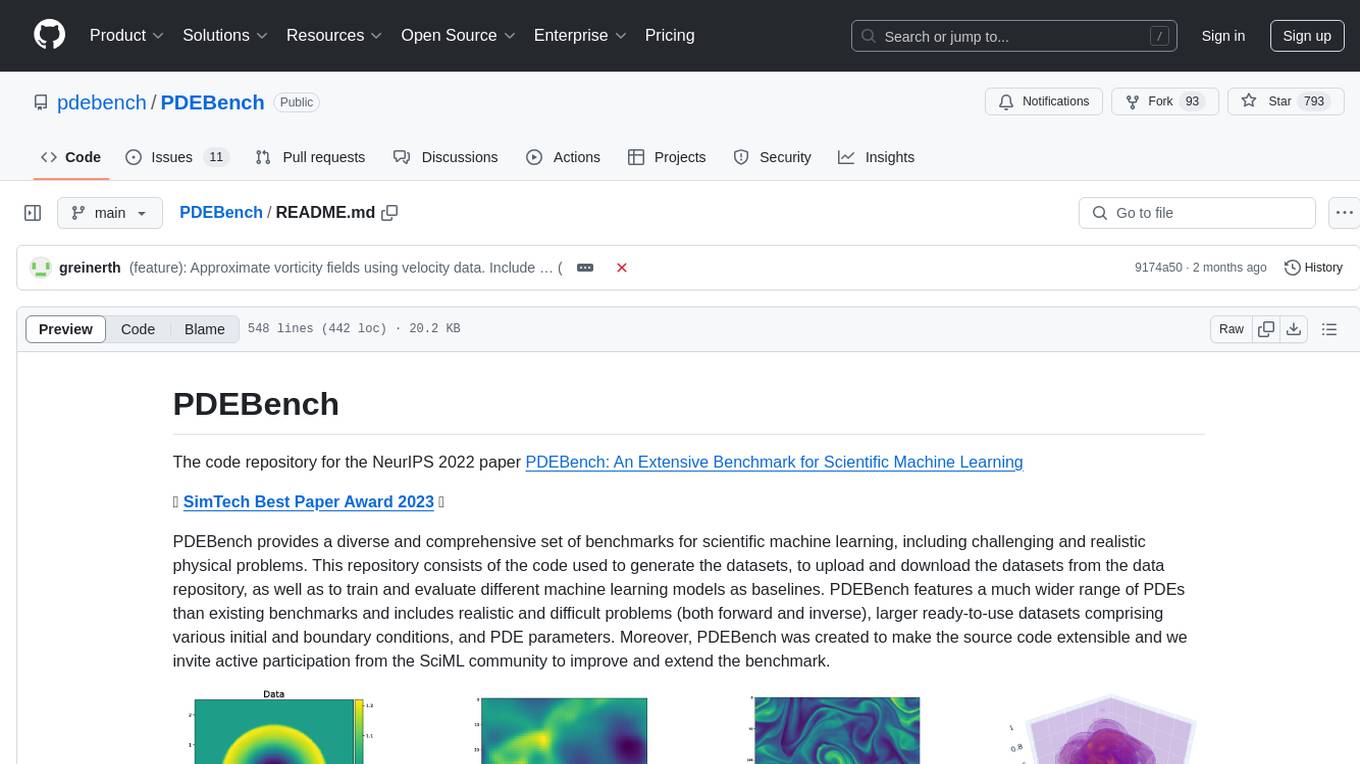
PDEBench
PDEBench provides a diverse and comprehensive set of benchmarks for scientific machine learning, including challenging and realistic physical problems. The repository consists of code for generating datasets, uploading and downloading datasets, training and evaluating machine learning models as baselines. It features a wide range of PDEs, realistic and difficult problems, ready-to-use datasets with various conditions and parameters. PDEBench aims for extensibility and invites participation from the SciML community to improve and extend the benchmark.
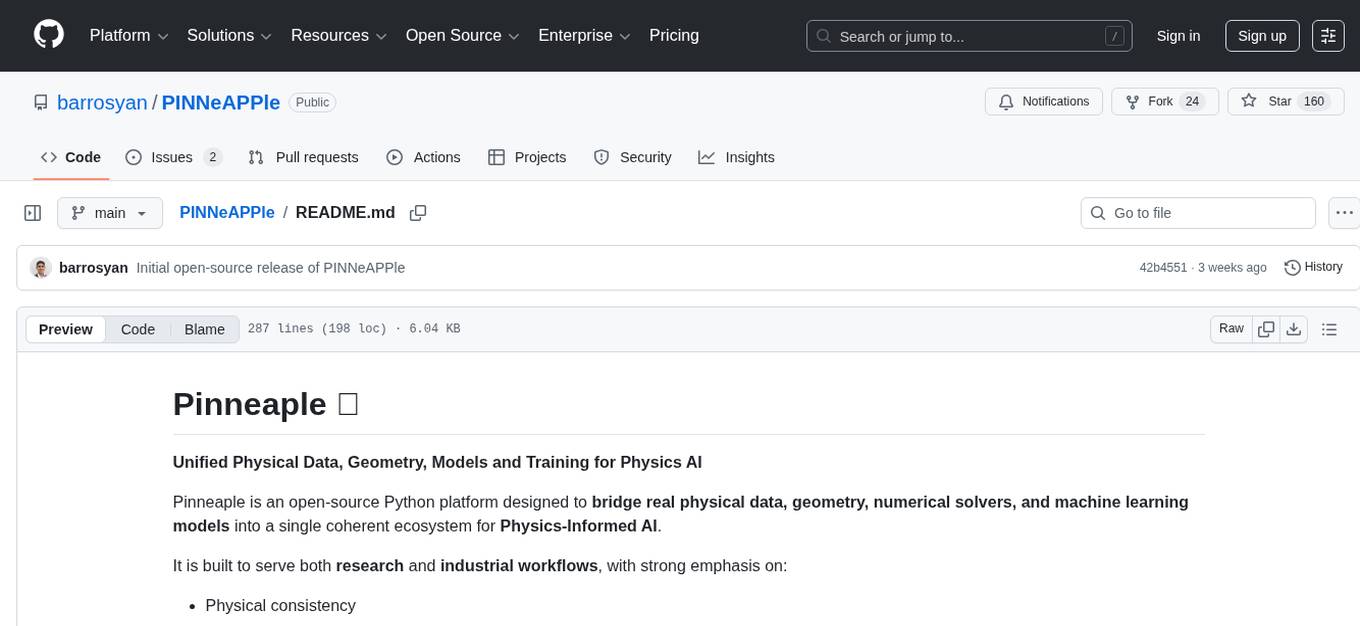
PINNeAPPle
Pinneaple is an open-source Python platform that unifies physical data, geometry, numerical solvers, and machine learning models for Physics-Informed AI. It emphasizes physical consistency, scalability, auditability, and interoperability with CFD/CAD/scientific data formats. It provides tools for unified physical dataset representation, data pipelines, geometry and mesh operations, a model zoo, physics loss factory, solvers, synthetic data generation, training and evaluation. The platform is designed for physics AI researchers, CFD/FEA/climate ML teams, industrial R&D groups, scientific ML practitioners, and anyone building surrogates, inverse models, or hybrid solvers.
16 - OpenAI Gpts
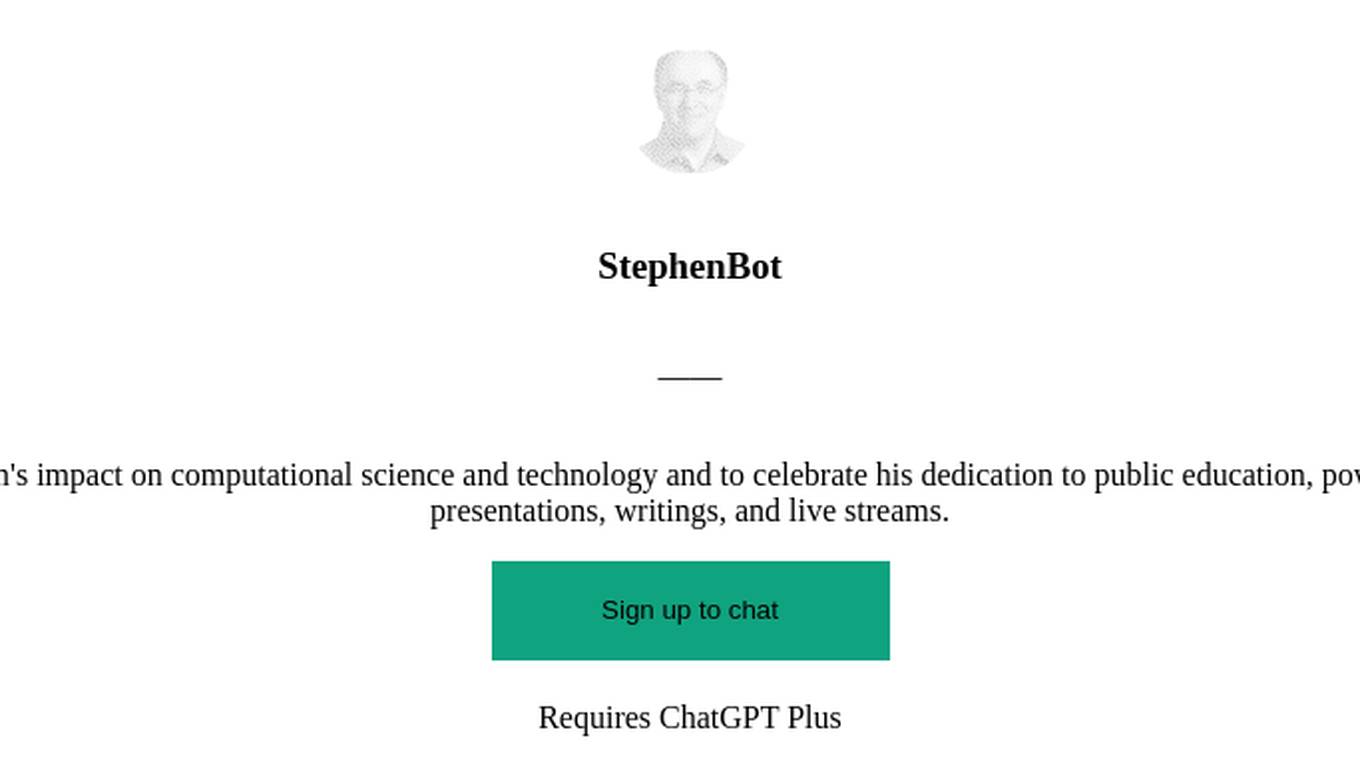
StephenBot
A digital homage to honor Stephen Wolfram's impact on computational science and technology and to celebrate his dedication to public education, powered by Stephen Wolfram's wealth of public presentations, writings, and live streams.

Formula Generator
Expert in generating and explaining mathematical, chemical, and computational formulas.
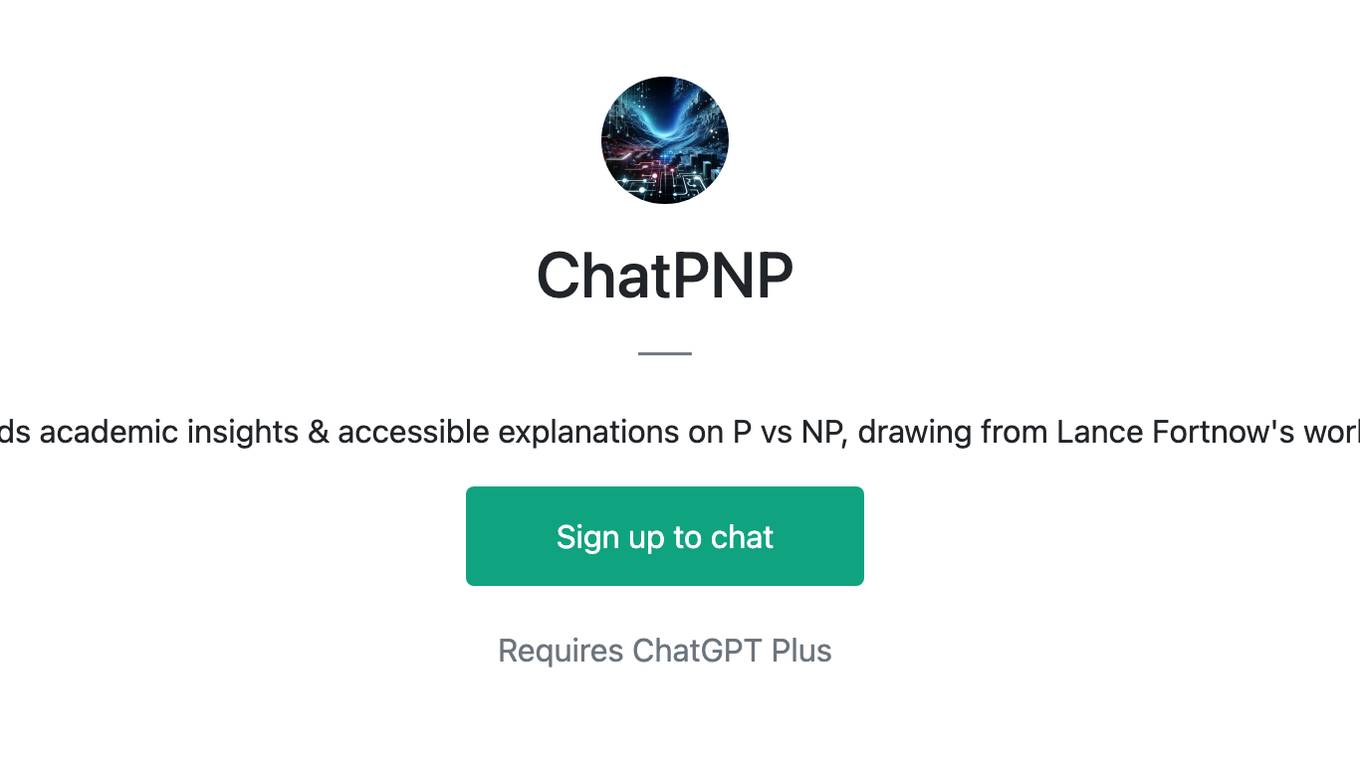
ChatPNP
Blends academic insights & accessible explanations on P vs NP, drawing from Lance Fortnow's works.
